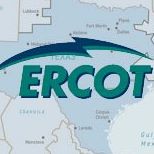Lawyers argued before the Texas Supreme Court on Monday over whether the state’s power grid operator should be protected from lawsuits, a question that has become especially important after the deadly February 2021 freeze.
Individuals and insurance companies have filed lawsuits against the Electric Reliability Council of Texas and power generators since the storm, which left millions of Texans without power in bitterly cold temperatures and hundreds of people dead after electricity was cut in large portions of the state. How those cases proceed will depend on what the Supreme Court decides in the coming weeks or months.
Lawyers for the ERCOT — the nonprofit that manages the state grid — argued Monday that it should receive the same “sovereign immunity” that largely shields government agencies from civil suits.
Because ERCOT is empowered by the state to fulfill a public function and is overseen by a state agency — the Public Utility Commission of Texas — ERCOT should not be held liable, they argued, saying legal claims against ERCOT should instead be the responsibility of the PUC.
ERCOT “has no function other than what the state assigned,” attorney Wallace Jefferson said. “It has no autonomy from the state. … It has no private interest. Its interest is in furthering the public’s interest in a reliable grid. The state controls its bylaws. And the state sets the fee that funds the organization.”
The opposing argument from attorneys in two separate cases was that giving ERCOT such immunity was inappropriate.
Attorneys for Panda Power Funds, a Dallas-area private equity firm that develops and operates power facilities, and CPS Energy, San Antonio’s energy utility, argued that just because ERCOT is regulated by a government entity doesn’t make it part of Texas government.
CPS Energy attorney Harriet O’Neill said the state Legislature has the power to make ERCOT explicitly part of the government, “but despite many opportunities, including after the winter storm, the Legislature has never conferred government status on ERCOT, which it knows how to do.”
Supreme Court Justice Jeff Boyd offered an analogy to explain the lawyers’ arguments: Imagine the state Legislature decided that all the yellow stripes on highways needed to be repainted red. If the Texas Department of Transportation did the work and was accused of doing it wrong, it would be protected from lawsuits.
But if the Legislature instead told TxDOT to authorize another entity to do the work and TxDOT set the prices and dictated how to paint the stripes, would the contractor then be considered a government entity?
See here, here, and here for some background. Note that the original Panda Power lawsuit was filed in 2019, well before the infamous freeze, and is over their claim that ERCOT intentionally manipulated projections of energy demand to encourage new power plant construction. I think Justice Boyd’s analogy is a good one and I can see the merit in either side. On balance, though, I think we overextend the principle of sovereign immunity in this state, and as such I’m rooting for the plaintiffs. But this could go either way. We ought to know in a few months.


“ERCOT “has no function other than what the state assigned,” attorney Wallace Jefferson said. “It has no autonomy from the state. … It has no private interest. Its interest is in furthering the public’s interest in a reliable grid. The state controls its bylaws. And the state sets the fee that funds the organization.”
Boy, that’s rich. ERCOT has no autonomy from the State ? If that was the case, wouldn’t the State’s previous guidance and instruction on what was needed to update, prep, etc., the power plants and the grid itself have taken place in order to keep the who shebang up-n-running during inclement weather events ?